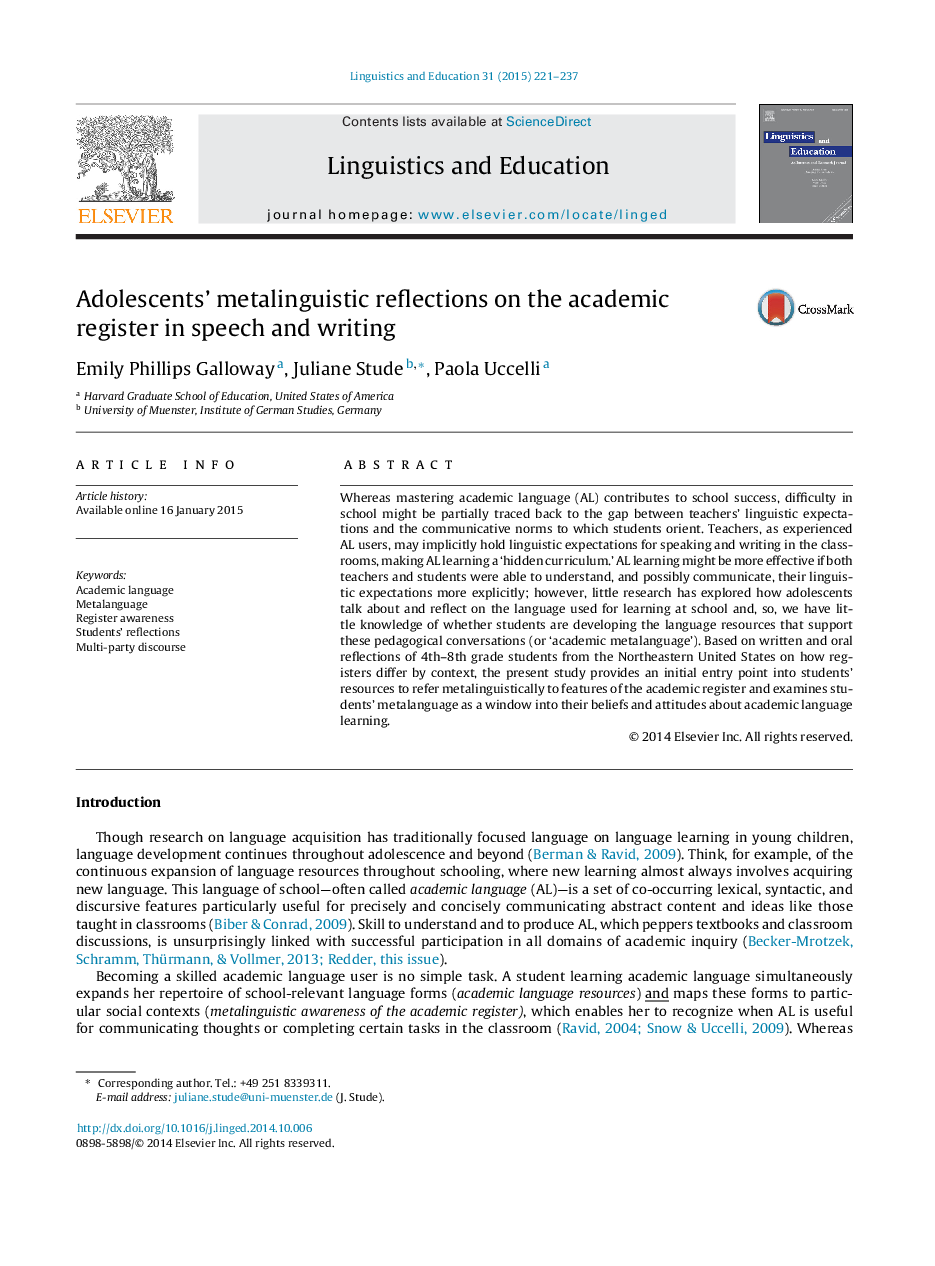| Article ID | Journal | Published Year | Pages | File Type |
|---|---|---|---|---|
| 366105 | Linguistics and Education | 2015 | 17 Pages |
•We examine the metalanguage middle graders use to describe academic register.•Metalanguage was captured in speech and writing.•Students were able to identify key features and uses of the academic register.•Students’ metalanguage revealed awareness of the social meaning of language.•Multi-party discourse appeared supportive of students’ metalinguistic reflection.
Whereas mastering academic language (AL) contributes to school success, difficulty in school might be partially traced back to the gap between teachers’ linguistic expectations and the communicative norms to which students orient. Teachers, as experienced AL users, may implicitly hold linguistic expectations for speaking and writing in the classrooms, making AL learning a ‘hidden curriculum.’ AL learning might be more effective if both teachers and students were able to understand, and possibly communicate, their linguistic expectations more explicitly; however, little research has explored how adolescents talk about and reflect on the language used for learning at school and, so, we have little knowledge of whether students are developing the language resources that support these pedagogical conversations (or ‘academic metalanguage’). Based on written and oral reflections of 4th–8th grade students from the Northeastern United States on how registers differ by context, the present study provides an initial entry point into students’ resources to refer metalinguistically to features of the academic register and examines students’ metalanguage as a window into their beliefs and attitudes about academic language learning.
